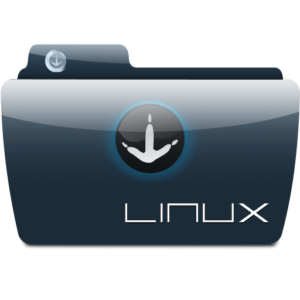Unix/Linux Data Recovery
Unix and Linux Data Recovery
Files Servers, Application Servers, Mail Servers, Web Servers, NAS devices (Quantum SNAP, Dell Power Vault, etc) and custom built Servers form the backbone of corporations’ business records storage systems Unix and Linux servers have long been a mainstay in corporate IT. Today, along with NetWare, Apple, Solaris, HP-UX, and Linux servers, form a significant portion of servers operational in businesses. At Seagate Recovery Services, we train our technicians on platform-specific configurations, enabling us to recover data from server hardware spanning the most popular brands such as IBM, Compaq, Dell, Hewlett-Packard, Sun as well as numerous others.
Why servers lose data… Naturally, the individual media in Servers suffer from the same failure points as do drives in personal computers and workstations. However, the increased complexity of many server operating.

Systems results in additional data loss situations
- Server registry configuration lost
- Intermittent drive failure resulting in configuration corruption
- Multiple drive failure
- Accidental replacement of media components
- Our specially trained technicians can recover data from any operating system and hardware platform
- operating system and hardware platform

Recover data from multiple operating systems and platform...
Intel-based platforms for UNIX Operating systems including
- Solaris, Linux with ext2fs, xfs, reiserfs & jfs filesystems on
- standalone & RAID volumes
- BSD based systems such as FreeBSD, OpenBSD and NetBSD
- BSDI
- SCO OpenServer and Xenix
- UnixWare from Novell and SCO
- LynxOS
- QNX
- AIX
Non-Intel UNIX Platforms such as
- Solaris on Sun/SPARC equipment, with ufs and Veritas VxFS filesystems
- HPUX on Hewlett-Packard workstations with hfs and Veritas
- VxFS file systems on standalone and LVMvolumes
- IRIX on SGI workstations with efs and xfs filesystems
- VMS & OpenVM running on Compaq & DEC equipment using
- ODS file systems
- AIX on IBM RS/6000 with jfs file systems on LVM volumes
Data Recovery For Linux OS
Linux is in fact, a member of the large UNIX family. Due to its popularity, low cost and open support, it has commanded a special niche in the operating system platform. Linux has been a very stable, flexible, secure and increasingly powerful OS with the relatively low licensing fee. It is an OS much favored by increasing number of technical users, each may choose to use a different flavor of Linux variants.
Amongst the more popular ones are:
- RedHat Linux
- Caldera Linux
- Mandrake Linux
- Turbo Linux
- SuSE Linux
- SCO Linux
- Debian Linux
- Slackware Linux
The file systems adopted are:
- ext2fs
- ext3fs
- ReiserFS
- JFS
Besides common hard disk crashes associated with desktop or laptop, one may encounter any of the following problems with the risk of losing the data.
- Damaged Super Block or Inode List
- Corrupted LVM logical volume
- Accident deletion (frequently through the command “rm”)
- Reformatted volume
- Lost or damaged partitions
- Unable to mount volume
- Fail to perform fsck due to fatal errors
- Data Recovery For Unix OS
Unix is not a single operating system. In fact, it is just a name that refers to hundreds of similar “UNIX-like” OS (with the different implementation of flavors) supported by different companies, organizations, and even individual. No single entity actually owns UNIX OS. What is common to UNIX is only the core set of UNIX commands so we are just seeing a number of Unix variants with different tuning. Each Unix can, therefore, has its own unique commands, features, capabilities and may design to work well or optimize on different sets of hardware.
A list of more popular UNIX OS could be summarized as follows:
- Linux with lots of popular variants
- Apple MacOS X Server
- NetBSD by NetBSD Group
- SCO Unix by Santa Cruz
- Sun Solaris by Sun Microsystems
- Reliant Unix by Siemens FreeBSD by FreeBSD Group
- GNU Herd GNU Organization
- LynxOS by Lynx Real-Time Systems
- HP-UX by by Hewlett-Packard
- Irix by Silicon Graphics OpenBSD by OpenBSD Group
- BSD/OS (BSDi) by Wind River
- Compaq Tru64 Unix
- IBM AIX
- CLIX by Intergraph Corp
Some UNIX variants are distributed under commercial products such as AIX, HP-UX, Solaris. There are also other free UNIX such as FreeBSD, Open BSD and a number of Linux variants which are distributed and supported by volunteer organizations and individuals under the GNU
General Public License.
Obviously , the UNIX file system are many and varied. Some example file systems are:
- Extended File System ext2, ext3, ReiserFS used in Linux
- Extended Acer Fast Filesystem EAFS used in SCO
- Extent File System EFS, XFS used in Irix
- Fast File System FFS, UFS – Unix File System UFS/UFS2 used in BSD
- Journaling file system JFS used in Linux, AIX
- Unix File System UFS used in older BSD
- Veritas file system VFS used in HPUX, Solaris, Linux and AIX
Need our services?
If you would like to find out more and speak to a member of The CyberTech team, then please get in touch. We’d be happy to help.
